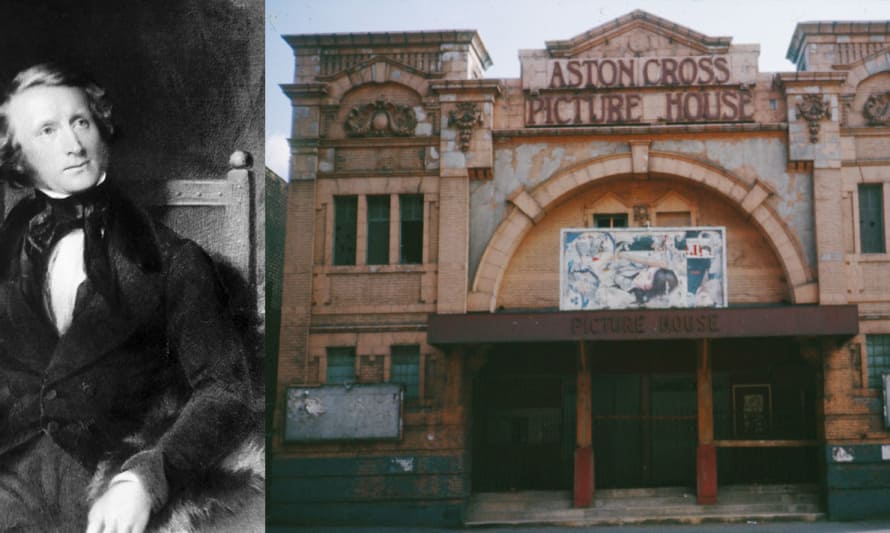
An introduction to Celluloid City
After a pilot at Flatpack no.9, our Celluloid City project kicks off in earnest this autumn. To give you a bit of context on the whole thing, here's a piece we wrote for Scalarama.
Although supposedly renowned for their self-deprecation, Brummies will happily credit their city with inventing everything from DNA and lemonade to flipbooks and celluloid. In the latter case, they have a point; local chemist Alexander Parkes (above left) patented a celluloid prototype in 1862 called Parkesine, and shortly afterwards some American came along with a more refined, stable version and made a killing. This is one reason we came up with the name Celluloid City (along with a fondness for alliteration, and the fact that it can be sung to the tune of Suffragette City).
However, this project is not so much about the materiality of film as the experience, whether analogue, digital or entirely imaginary. How you see a film has always been crucial, even in cinema’s infancy. The elaborate presentations of early Birmingham showman Waller Jeffs had all kinds of unforeseen consequences, cited as inspirational by Iris Barry (who went on to set up the first film archive at New York’s Museum of Modern Art) and Michael Balcon (founder of Ealing Studios).
Soon the buildings themselves were beginning to outshine the films, thanks in part to Balcon’s schoolfriend Oscar Deutsch. His 30s Odeon boom was built on the rapid spread of suburbia, the willingness of builders to work on spec during the depression, and the elegant, streamlined work of a group of young architects fresh out of school. As well as the balti, Birmingham may also lay claim to the notion of Bollywood in the UK; the first South Asian cinemas sprang up here, functioning as makeshift community centres as much as entertainment venues.
The cinema experience can be a prism for so many other things – class and sex, dreams and design. We’d like to map out a century-plus of film-going, in a city that boasted over 100 picturehouses at its peak. To start with we’re gathering people’s stories, and concentrating on a few key locations including the UK’s oldest working cinema. Compared with some of its grander 40s competitors you might not have predicted such longevity for the Electric, a back-street newsreel theatre that has somehow survived a whole century by shape-shifting from cartoons and soft porn via repertory fleapit and right up to the boutique sofa era.
The city’s last holdout for 35mm, the Electric is a fitting place to kick off our first Celluloid City season with Woody Allen’s love-letter to movie-going and the blurring of fantasy and reality. The Purple Rose of Cairo screens on 35mm at the Electric Cinema, on Saturday 19 September at 2pm.
